Second round debate takeaways: Should 2020 democrats go big or get real?
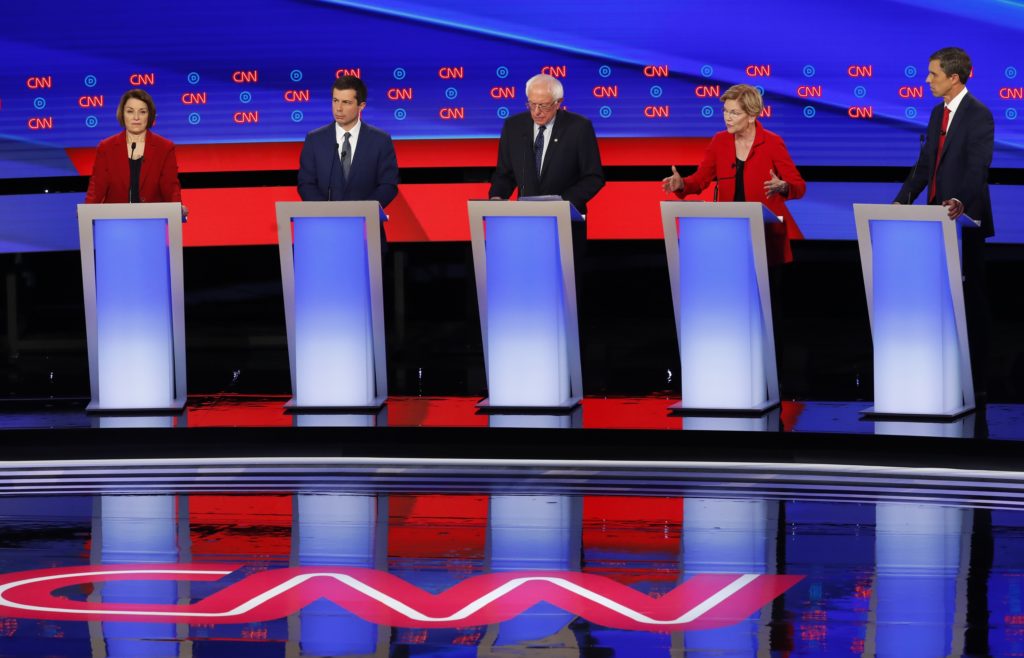
Should Democrats be going big or getting real? That’s the question that dominated the Democratic presidential primary debate as progressive favorites Elizabeth Warren and Bernie Sanders fended off attacks from lesser-known moderates. The display amounted to a sometimes testy public airing of the party’s anxieties about how far left is too left and how to beat President Donald Trump. Here are the key takeaways from the debate: EVOLUTION VS. REVOLUTION The battle lines were clear at Tuesday’s debate from the opening remarks. This was the pragmatists against the front-runners seeking transformational change. Over and over, moderate candidates like Montana Gov. Steve Bullock, former Colorado Gov. John Hickenlooper and former Rep. John Delaney argued Massachusetts Sen. Elizabeth Warren and Vermont Sen. Bernie Sanders’ plans — from “Medicare for All” to the Green New Deal — are unrealistic and would scare off voters. Bullock bemoaned the candidates’ “wish-list economics.” Minnesota Sen. Amy Klobuchar dismissed free college even for wealthy families as unworkable and touted her ideas “grounded in reality.” Hickenlooper called for “an evolution, not a revolution,” on health care. The attacks weren’t shocking in a debate that featured the progressive standouts Warren and Sanders onstage with a handful of lesser-known moderates looking to seize the spotlight. But the two senators’ unified front in fighting them off was notable. Though they are jockeying for some of the same voters, Warren and Sanders didn’t bother going after each other. They largely beat back the moderate critique of their call for sweeping, systemic change with similar arguments. Sanders argued his health plan is “not radical” and achievable. Warren said the country’s problems can’t be solved with “small ideas and spinelessness.” PLAYING INTO TRUMP’S HANDS? Donald Trump loomed large over the Democratic debate stage. Repeatedly, the candidates mixed their policy plans with political strategy, arguing over whether their party’s leftward push will only open them up to GOP criticism. On topics from Medicare for All to immigration, Warren and Sanders found themselves under attack as their more moderate competitors told them their policies only played into Trump’s hands. The notion of taking away private insurance from millions and a Green New Deal that “makes sure that every American’s guaranteed a government job that they want” is “a disaster at the ballot box,” Hickenlooper said. “You might as well FedEx the election to Donald Trump,” Hickenlooper said. Delaney wondered, “Why do we have to be so extreme?” Even self-help author Marianne Williamson chimed in to say she does “have concern about what the Republicans would say.” South Bend, Indiana, Mayor Pete Buttigieg tried to end the unusually public display of anxiety, declaring that “it is time to stop worrying about what the Republicans will say.” “If it’s true that if we embrace a far left agenda they’re going to say we’re a bunch of crazy socialists,” Buttigieg said. “If we embrace a conservative agenda, you know what they’re going to do? They’re going to say we’re a bunch of crazy socialists. So let’s just stand up for the right policy, go out there, and defend it.” MEDICARE FOR ALL TAKES HEAT If the fight was between centrists and progressives, Medicare for All was the weapon. The early moments of the debate were dominated by a fight over whether Sanders’ plan to eliminate private insurance in favor of a universal government health plan is possible, practical or political suicide. At times, with Medicare for All supporters Sanders and Warren outnumbered, the centrists piled on, raising doubts about the quality of care it could offer, the costs and the disruption to the health care system. Ohio Rep. Tim Ryan called it “bad policy and bad politics.” Bullock said he couldn’t support a plan that “rips away” insurance from Americans who have it. “It used to be Republicans who wanted to do repeal and replace,” Bullock said, referring to the Republican refrain on getting rid of President Barack Obama’s Affordable Care Act. Sanders, who has spent much of his career on the issue, grew agitated as he defended the plan. The coverage would actually be better, he argued. “You don’t know that, Bernie,” Ryan interjected. “I do know,” Sanders fired back. “I wrote the damn bill!” UNITED AGAINST TRUMP ON RACE For all the divisions onstage Tuesday, the candidates were unified in rebuking Trump’s racist comments and using race as a campaign theme for 2020. Trump in recent weeks has told four congresswomen of color to “go back” to the countries they came from even though they’re all U.S. citizens and has criticized Rep. Elijah Cummings’ Baltimore-area district as a “rat and rodent infested mess.” “I have had it with the racist attacks,” Klobuchar said in her opening statement.Sanders said Trump exploited racism. Warren said, “The president is advancing environmental racism, economic racism, criminal justice racism, health care racism.” Warren won strong applause from the Detroit audience when she declared her administration would treat white supremacy as a form of domestic terrorism. Buttigieg also directed criticism at members of Congress he said are supportive of or silent on “naked racism” in the White House. “If you are a Republican member of Congress, consider the fact that when the sun sets on your career, and they are writing your story of all the good and bad things you did in your life, the thing you will be remembered for is whether in this moment, with this president, you found the courage to stand up to him or you continued to put party over country,” he said. It was one of the loudest applause lines of the night. The Alabama Today post on the first democratic debate can be found here. By Sara Burnett and Brian Slodysko Associated Press Associated Press writer Hunter Woodall contributed from Detroit. Republished with permission of the Associated Press.
Freshmen house democrats raise more money than gop opponents
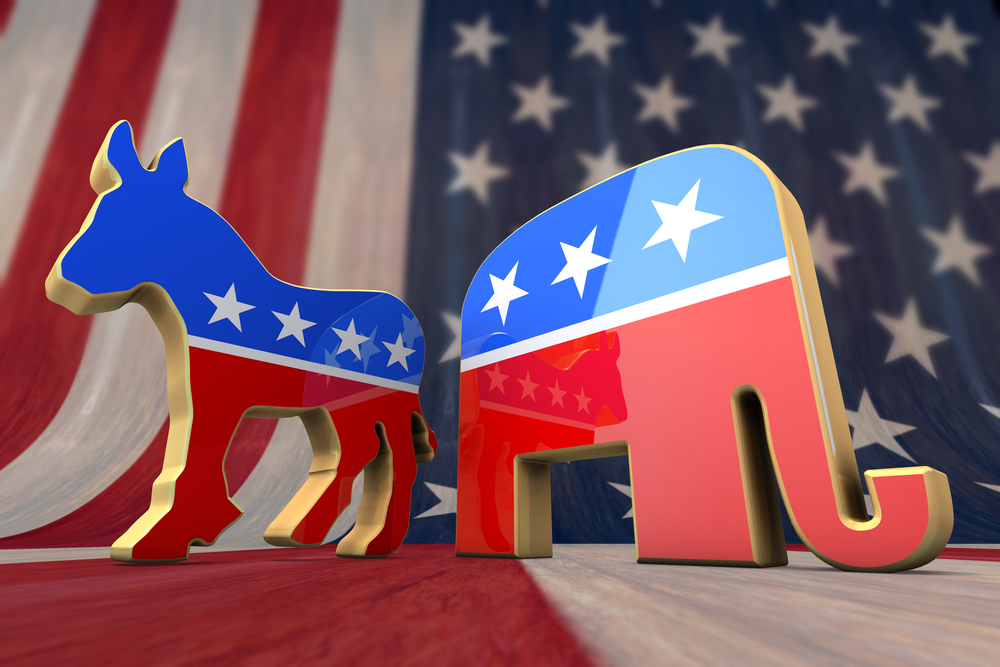
The Republican pathway for recapturing House control in next year’s election charges straight through the districts of the most vulnerable Democratic incumbents, especially freshmen. Judging from early but formidable cash advantages those lawmakers have amassed, ousting them won’t be easy. Each of the 62 freshmen House Democrats has raised more money than their top opponent. The same is true for all 31 Democrats from districts President Donald Trump had won in 2016 and for all 39 Democrats who snatched Republican-held seats last November. In nearly all cases it’s not even close. While there’s overlap among the categories, most of these Democrats’ war chests are multiples of what their leading challengers have garnered. That’s testament to the historic ability of both parties’ incumbents to attract contributions and Democrats’ strategy of aggressively collecting money quickly to seize on the anti-Trump enthusiasm that fueled their House takeover last year . “The more you can raise early on, the more you’re going to be able to solidify your seat and show that it’s not worth investments on behalf of Republicans” by GOP donors, said freshman Rep. Katie Hill, Democrat-California. Hill has raised $1.3 million so far this year, more than triple the combined contributions reported by her four would-be Republican challengers. She was elected last year in a Southern California district Republicans had held since 1993. Democrats control the House 235-197, with one independent and two vacancies. Republicans will need 218 seats for a majority. Democrats’ money advantages reflect reports filed with the Federal Election Commission covering the first half of 2019, so plenty can change by Election Day. Many serious challengers haven’t commenced their campaigns yet or have only recently started raising money, and many Republicans will eventually overtake their Democratic rivals. In addition, by November 2020 many GOP candidates will be bolstered by the Republican Party’s allied super PACs, political action committees that can spend unlimited funds. The Congressional Leadership Fund, the GOP super PAC that helps House candidates, unleashed $159 million in 2018 races, well above the $96 million by Democrats’ House Majority Fund. “We haven’t seen anything yet. Wait till the super PACs start dropping their bombs later in the cycle,” warned former New York Rep. Steve Israel, who once led the Democratic Congressional Campaign Committee, or DCCC, House Democrats’ election organization. Republicans downplay the early money discrepancies but concede the numbers merit attention. “It’s a wake-up call to every Republican that you’ve got to be out there doing the work, making sure we beat the trend of money coming in” to Democrats, said Rep. Rodney Davis, Republican-Illonios. Davis is a top Democratic target who was re-elected by less than 1 percentage point last November and faces a 2020 rematch against the well-financed Betsy Londrigan. Even so, warning signs for the GOP are scattered around the country. Democratic freshman Rep. Joe Cunningham, who squeaked into office in South Carolina’s Trump-leaning Lowcountry coastal district, has raised nearly $1.3 million. That’s more than quadruple his best-funded GOP opponent and double the top three Republicans’ contributions combined. Also outstripping their top money-raising GOP challengers are five freshmen from districts Trump carried by a comfortable 10 percentage points or more: Reps. Jared Golden of Maine, Kendra Horn of Oklahoma, Xochitl Torres Small of New Mexico and Anthony Brindisi and Max Rose of New York. Freshman Rep. Tom Malinowski, Democrat-New Jersey, who defeated a GOP incumbent in November, has doubled the fundraising of Tom Kean Jr., a prized GOP recruit and son of a popular former governor by the same name. Sixteen freshmen Democrats ousted Republicans last year by a narrow 4 percentage points or less, and all but two of them have raised at least twice as much as their nearest GOP rival: Reps. Gil Cisneros of Southern California and Oklahoma’s Horn. Underscoring Democrats’ efforts to shore up vulnerable incumbents, 26 of the 62 Democratic freshmen have already raised $1 million or more. They’re led by the nearly $2 million accumulated by the party’s highest-profile newcomer, progressive Rep. Alexandria Ocasio-Cortez , who has a safe New York City seat but seems likely to use some money to help others. Also exceeding $1 million in receipts are 13 of the 31 Democrats who captured Trump-won districts, and 23 of the 39 Democrats who grabbed GOP seats. One of those flush Democrats is freshman Rep. Josh Harder of California’s Central Valley. He’s raised more than $1.6 million, tripling his best-financed GOP challenger, Ted Howze, a large-animal veterinarian who ran unsuccessfully last year. “We don’t have to raise as much as him, but just enough to get our message out,” said Howze. He said he could need up to $6 million for his campaign. Harder spent more than $8 million to win in 2018. The DCCC should further shore up Democrats. It disbursed $297 million helping candidates for 2018, exceeding the $201 million spent by its counterpart, the National Republican Congressional Committee. It’s ahead in this year’s money race as well. In some areas, Republicans are already exhibiting fundraising chops. Don Sedgwick, mayor of Laguna Hills, California, has raised an impressive $621,000, but that’s a fraction of the $1.4 million collected by his intended target, freshman Democratic Rep. Katie Porter. Republican Young Kim, whom Cisneros narrowly defeated in 2018, is not far behind the $579,000 Cisneros has raised. And while freshman Rep. Lucy McBath, Democrat-Georgia, has raised nearly $1.2 million, the top four GOP contenders have raised $1.5 million combined. That suggests plenty of money may be available for the eventual Republican nominee. By Alan Fram Associated Press. Republished with permission of the Associated Press.
2020 election to test if democrats can draw multiracial coalition
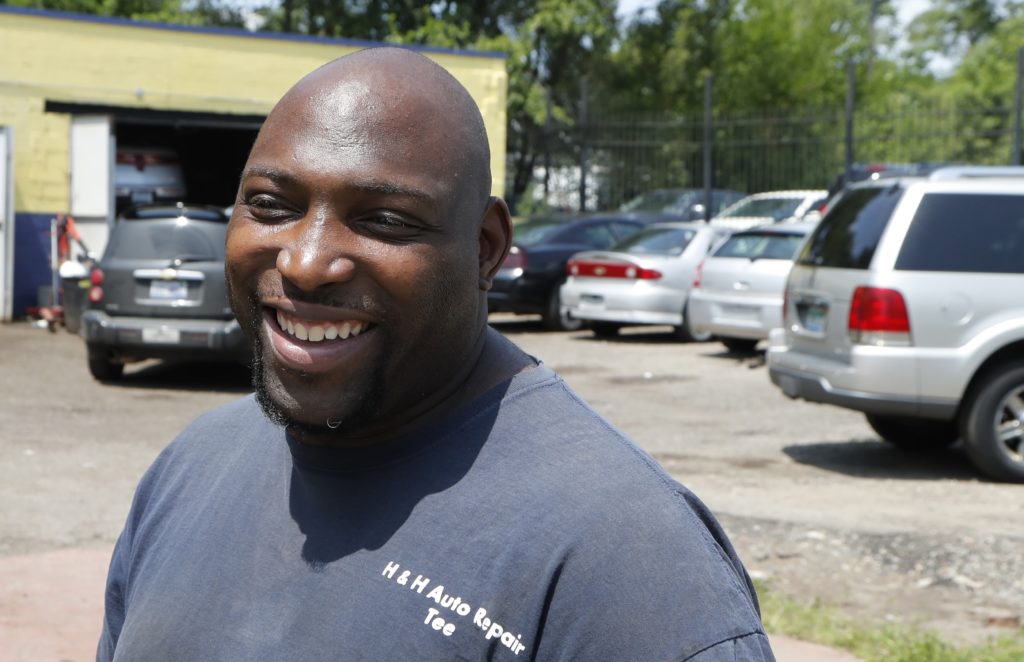
When Barack Obama was on the ballot in 2008 and 2012, there was no question that Terrance Holmes would vote for the first black president. But as he helped fix cars this week at a repair shop on Detroit’s west side, he recalled his ambivalence about the 2016 campaign. “I just didn’t feel no reason to” vote, said Holmes, who is black and holds a second job at an auto parts factory. The 34-year-old feels differently now as another election season begins. He hasn’t paid much attention to the early Democratic primary and didn’t know that two high-profile black candidates are running. But he vowed to help vote President Donald Trump out of office in 2020, regardless of which Democrat emerges as his challenger. The most important thing, Holmes said, is “to get Trump out.” The upcoming presidential campaign offers a critical test for Democrats of whether they can ever again rely on the multiracial coalition that helped propel Obama to the White House twice. Young black voters like Holmes are critical to that effort, especially in states like Michigan, which Democrats lost by just over 10,000 votes in 2016, ceding a state that hadn’t backed a Republican since 1988. Reclaiming it, along with Pennsylvania and Wisconsin, would put Democrats on a firmer path to the presidency. Black voters are the base of the Democratic Party and its most consistent and loyal voting bloc. Black people voted in record numbers for Obama in 2008 and 2012 and overwhelmingly supported Hillary Clinton in 2016. But nationally, the African American turnout rate dropped 7 percentage points in 2016 from its record high during Obama’s 2012 reelection, according to U.S. Census Bureau data. Other groups did not see a comparable decrease — white turnout increased slightly while Latinos held steady. Bernard Fraga, a political science professor at Indiana University, wrote a book on turnout last year. He attributes the drop in black voter turnout to several factors, including Russian interference in the election, tactical errors by Clinton’s Democratic presidential campaign and less enthusiasm for voting for someone other than Obama. But he said the most important thing Democratic candidates can do is prove to black voters that they’ll work for their support. “It’s not one single thing, but what it points to is Democrats can’t just take black turnout for granted,” Fraga said. Democrats insist they’ll reverse the decline in 2020. They’re already spending significant time in Michigan, holding their second set of presidential debates next week in Detroit. Many candidates were in town on Wednesday to address the NAACP’s annual convention, where they outlined their agendas for black communities. Several contenders are making explicit appeals to black voters and blasting their rivals as weak on issues related to civil rights. California Sen. Kamala Harris, one of the two leading black candidates in the contest, slammed former Vice President Joe Biden during the first debate for his opposition to busing in the 1970s. The other black candidate, New Jersey Sen. Cory Booker, is warning that the party needs a nominee who can turn out minorities who skipped 2016. Vermont Sen. Bernie Sanders, who won the support of many younger black Democrats during the 2016 primary, has stepped up his references to racial disparities. Other candidates speak regularly of criminal justice reform, the racial wealth gap and high mortality rates among pregnant black women. Not to be outdone, Trump has attempted appeals to black voters. Even as he ignited a firestorm this month with racist tweets targeting four congresswomen of color, he frequently touts the black unemployment rate that has declined under his administration and his support of a criminal justice overhaul bill. Activists worry that Democrats still aren’t doing enough to appeal to a minority population that remains alienated and demoralized, with unemployment rates higher than that of whites and continuing cases of police killing unarmed black men. “Candidates have to understand the fault lines that exist within the black electorate,” said Adrianne Shropshire of BlackPAC, which works on turning out African American voters. “The Democratic underperformance that we’ve seen can be explained in many ways by millennial dissatisfaction.” Younger black voters, like young people overall, aren’t as reliable as their older counterparts. But Michigan illustrates their importance. Based on data from state voter records, Fraga estimates a 12 percent drop in black voter turnout in Michigan in 2016 compared with 2012, the steepest decline in African American voting performance in the nation along with neighboring Wisconsin. Fraga said the falloff was disproportionately among younger and male voters. Democrats found some promising signs in Michigan last year. The party clinched the governor’s mansion and attorney general’s office and netted two House seats. Democratic groups say their internal data suggests some black voters who didn’t participate in 2016 showed up to the polls in 2018. In Detroit, 28,000 more ballots were cast than in the prior midterm election of 2014. Lavora Barnes, the chairwoman of Michigan’s Democratic Party, said the party started contacting black voters shortly after the 2016 election, knowing it had to invest more in turning them out. It also has had to tailor a message to younger voters whose political awareness started with Obama’s 2008 campaign. “It is a very different world where you grew up with Barack Obama, and then you saw your country turn on you and elect Donald Trump,” Barnes said. She tells younger black voters: “This is the moment you fight.” Democrats remain nervous about that fight. Priorities USA, a major Democratic campaign group, warns that it has found African Americans remain less motivated about 2020 than other Democratic voters. Branden Snyder was the deputy field director of Democrats’ 2016 Michigan campaign and now runs a group that tries to boost minority turnout in Detroit. He’s also worried. “The slice that isn’t being engaged by the Democrats is non-college black men. The people who are talking about this are the RNC,” Snyder said, referring to the Republican National Committee. “The RNC and Trump are coming and
House oks $15 minimum wage, setting marker for 2020 campaign
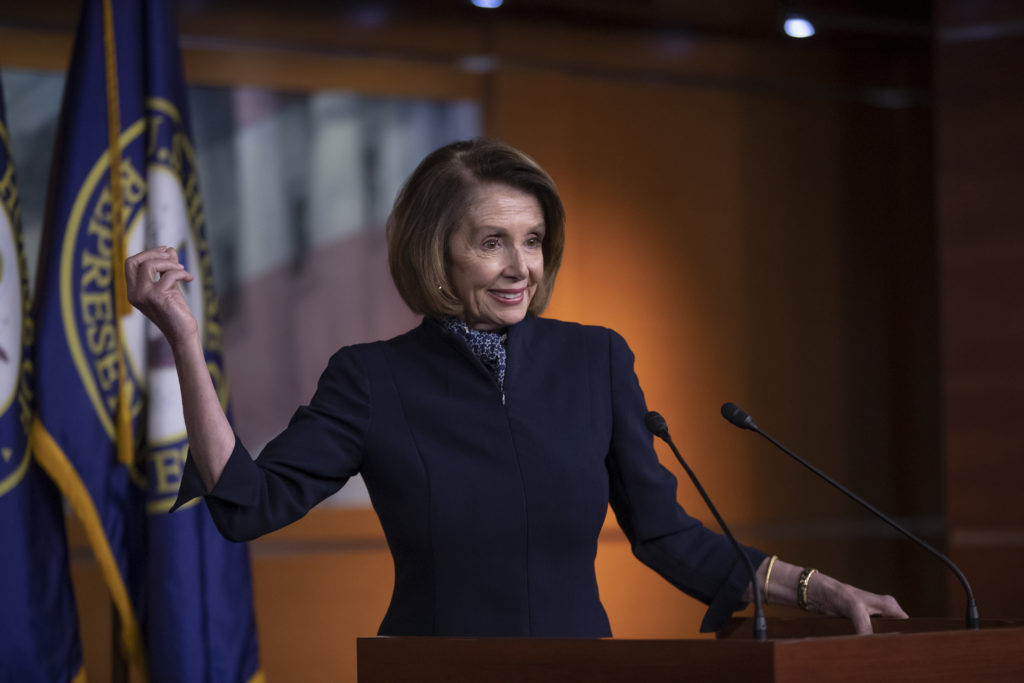
House Democrats approved legislation Thursday to raise the federal minimum wage for the first time in a decade, to $15 an hour, transforming an issue that once splintered the party into a benchmark for the 2020 election. Even though the bill has little chance of passing the Republican-led Senate, or being signed into law by President Donald Trump, the outcome pushes the phased-in rate to the forefront as the new standard, one already in place at some leading U.S. corporations. While the increase would boost pay for some 30 million low-wage workers, intended as one answer to income inequality, passage was assured only after centrist Democrats won adjustments to the bill. Reluctant to embrace the party’s left flank, they pushed for changes, including a slower six-year phase-in of the wage. It’s a reminder of moderates’ influence on policy, but also the limits. “We’re testing candidates from the presidential all the way down to the school board,” said Mary Kay Henry, the president of the Service Employees International Union whose members cheered passage from the House gallery. To address stark income inequality, she said, “they have to raise wages.” A hike in the $7.25 hourly wage has been a top Democratic campaign promise, and what Majority Leader Steny Hoyer of Maryland called Thursday the “right thing to do.” “America’s workers deserve a raise,” said Speaker Nancy Pelosi at a press conference with labor leaders and employees ahead of voting. Lifting a young girl into her arms, Pelosi said, “This is what it’s all about… It’s about family.” The last increase in the federal minimum occurred 10 years ago, the longest stretch without an adjustment since the wage floor was first enacted during the 1930s. The wage protection covers millions of low-wage workers in all types of jobs. Under the House bill, for the first time, tipped workers would be required to be paid the same as others earning the minimum, boosting their pay to $15 an hour, too. It’s now $2.13, in what labor scholars call a jarring remnant from the legacy of slavery, when newly freed workers received only tips. Republicans in the House balked at the wage hike, which would be the first since Democrats last controlled the majority. Just three Republicans joined most Democrats in passage, on a 231-199 vote. During the floor debate, Rep. Ronald Wright, Republican-Texas, called it a “disastrous bill.” Republicans have long maintained that states and municipalities are already able to raise the wage beyond the federal minimum, and many have done so. They warn higher wages will cost jobs, especially among smaller business owners. Wright said the bill should be renamed the “Raising Unemployment for American Workers Act.” While opponents have long said higher minimum wages lead to job losses, economists say new studies are casting doubt on those long-held theories. A report from the nonpartisan Congressional Budget Office sent mixed messages. It said more than 30 million workers would see bigger paychecks with a higher wage, lifting more than 1 million workers from poverty. It also said between 1 million and 3 million jobs could be lost. At time of wage stagnation and grave income inequality that’s playing out on the campaign trail, Democrats led by Rep. Bobby Scott, Democrat-Virginia, the chairman of the House Education and Labor Committee, are willing to accept that tradeoff. But swift passage earlier this year ran into trouble when centrists and those Democrats from rural regions and Southern states raised concerns. While the new Democratic majority is often seen as pushing the House leftward, many of the freshmen are actually moderates from districts won by Trump in 2016. Those same freshmen will face some of the toughest reelection races in 2020. The moderate Blue Dog Coalition, led by Rep. Stephanie Murphy, Democrat-Florida, advocated for changes to the wage bill. With some two dozen members, the caucus has enough votes to deny Pelosi a majority and sink the legislation. They wanted the longer phase of six years instead of five. And they included an amendment requiring a report from the General Accountability Office, after the first phases of the wage hike, to assess the economic impact on jobs and whether wages should be fully raised to $15. “I’ve always been one to believe compromise is not a dirty word,” Murphy said in an interview. “It has helped us get things done.” Most members of the Blue Dogs and another centrist caucus, the New Democratic Coalition, ended up voting for the bill. They also held the line against a Republican alternative. Progressives and labor leaders said they could live with the changes. Rep. Mark Pocan, Democratic-Wisconsin, co-chairman of the Congressional Progressive Caucus, said the bill is popular back home and far from Trump’s characterization of Democrats as “socialists.” The idea of a $15 hourly wage, “somehow that’s an out-of-the-mainstream thought?” he said. “Of course not.” Advocates who have been trying to boost wages for workers for years said they were stunned at how quickly the debate shifted. Sara Jayaraman, president of the Restaurant Opportunities Center United, group founded with displaced workers from the World Trade Center after the Sept. 11, 2001 terror attacks, said boosting the tipped wages in particular, for waiters and other tipped workers, was a milestone. It’s “historic moment and a historic bill,” she said. “Once you start raising workers’ wages it’s hard to go back.” By Lisa Mascaro AP Congressional Correspondent. Follow Mascaro at http://twitter.com/@lisamascaro. Republished with permission of the Associated Press.
Democrats eye new inquiries, witnesses after Michael Cohen testimony
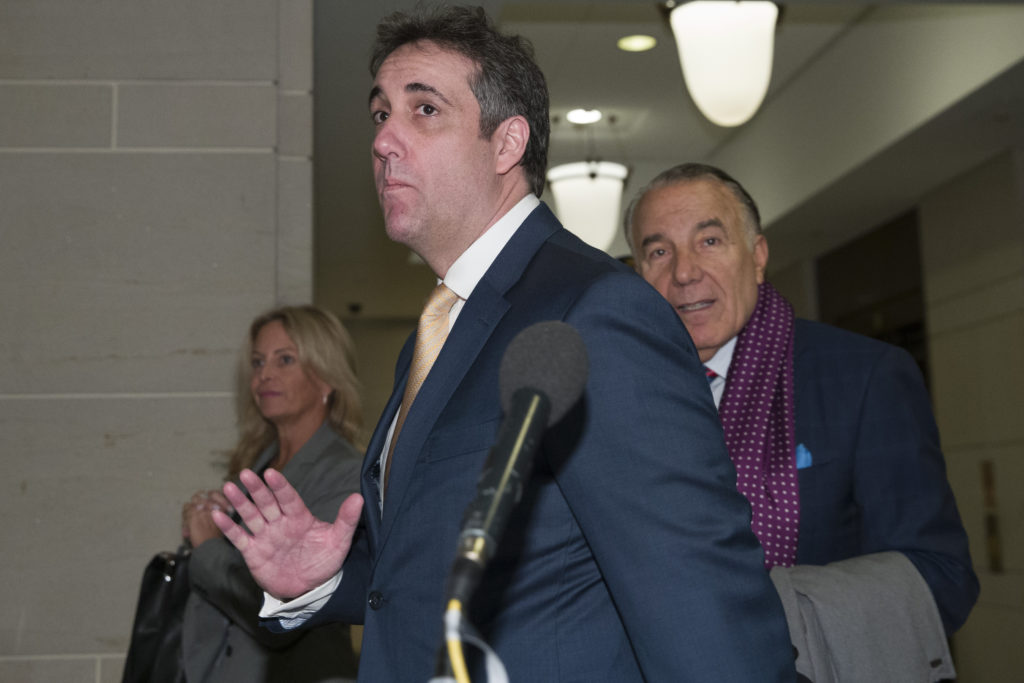
After three days of grilling Michael Cohen, President Donald Trump’s former lawyer, Democrats are quickly using his words as a roadmap to open new lines of investigation into the president’s ties to Russia and summon additional witnesses. Cohen completed a third day of testimony on Capitol Hill Thursday, one day after publicly branding his former boss a racist and a con man who lied about business dealings in Russia and directed him to conceal extramarital relationships. He was interviewed behind closed doors by the House Intelligence Committee for more than eight hours. As he left the House intelligence interview, Cohen said he would be returning to Capitol Hill on March 6 for another round of questioning with that panel. The weeklong gauntlet of interviews with Cohen launched what is expected to be months of investigations of Trump and those connected to him. Multiple Democrat-led House committees are pledging to investigate not only Trump’s campaign’s ties to Russia, which are also the subject of special counsel Robert Mueller’s probe, but presidential conflicts of interest, possible money laundering and other oversight matters that Democrats say were ignored under GOP control. House Intelligence Chairman Rep. Adam Schiff called the closed-door session with Cohen productive and said lawmakers were able to “drill down in great detail” on issues they are investigating. Another Democratic committee member, California Rep. Eric Swalwell, said Cohen “has been asked, based on a lot of new evidence we learned today, to bring corroborating materials that he believes he has.” Schiff said the committee will hear from Felix Sater, a Russia-born executive who worked with Cohen on an ultimately unsuccessful deal to build a Trump Tower in Moscow, in an open hearing March 14. In addition, a committee aide said the panel also anticipates inviting Trump Organization chief financial officer Allen Weisselberg to testify. Cohen mentioned the Trump Organization chief financial officer several times in his public House Oversight testimony, linking him to hush money payments to porn actress Stormy Daniels, who alleged she had an affair with Donald Trump. Trump denies the affair. The Oversight Committee is also planning on calling additional witnesses after Cohen’s testimony. The committee’s chairman, Maryland Rep. Elijah Cummings, indicated the panel could bring in a broad swath of people that Cohen mentioned in Wednesday’s hearing. He told reporters that his panel is poring over the transcript and anyone mentioned multiple times has a chance of hearing from them. Based on who was mentioned in the hearing, possible witnesses could include Weisselberg and two of the president’s children, Donald Trump Jr. and Ivanka Trump. Daniels was also mentioned frequently. Cohen, who pleaded guilty last year to lying to Congress about the Moscow real estate project and reports to prison in May for a three-year sentence, gave harsh testimony about Trump on several fronts Wednesday. He said Trump knew in advance that damaging emails about Democrat Hillary Clinton would be released during the 2016 campaign — a claim the president has denied — and accused Trump of lying during the 2016 campaign about the Moscow deal. Cohen also said Trump directed him to arrange the hush money payment to Daniels. He said the president arranged to reimburse Cohen, and Cohen brought to the hearing a check that he said was proof of the transaction. He said prosecutors in New York were investigating conversations Trump or his advisers had with him after his office and hotel room were raided by the FBI last April. Cohen said he could not discuss that conversation, the last contact he said he has had with the president or anyone acting on his behalf, because it remains under investigation. Two of Trump’s most vocal defenders, GOP Reps. Jim Jordan of Ohio and Mark Meadows of North Carolina, sent a referral to the Justice Department alleging Cohen lied in his testimony. Their letter to Attorney General William Barr details several Cohen statements they said were false, including claims that he “never defrauded any bank” and did not want a job in Trump’s White House. They pointed to Cohen’s guilty plea for making false statements to a banking institution and to court filings that say Cohen told friends he wanted a White House job. Cohen’s testimony unfolded as Trump was in Vietnam meeting with North Korean leader Kim Jong Un. Trump said he tried to watch as much of Cohen’s marathon hearing as he could. Trump called the hearing “fake” and said it was a “terrible thing” for Democrats to hold it during his summit. He seized on Cohen’s concession that he had no direct evidence that Trump or his aides colluded with Russia to get him elected, the primary question of special counsel Robert Mueller‘s investigation. Trump said he was a “little impressed” that Cohen had said that to the House Oversight and Reform Committee. Cohen, shaking off incessant criticism from Republicans , was the first Trump insider to pull back the curtain on a version of the inner workings of Trump’s political and business operations. He likened the president to a “mobster” who demanded blind loyalty from underlings and expected them to lie on his behalf. “My loyalty to Mr. Trump has cost me everything: my family’s happiness, friendships, my law license, my company, my livelihood, my honor, my reputation and soon my freedom,” Cohen said. “I will not sit back, say nothing and allow him to do the same to the country.” Republished with permission from the Associated Press.
Democrats ready to fight to make Robert Mueller report public
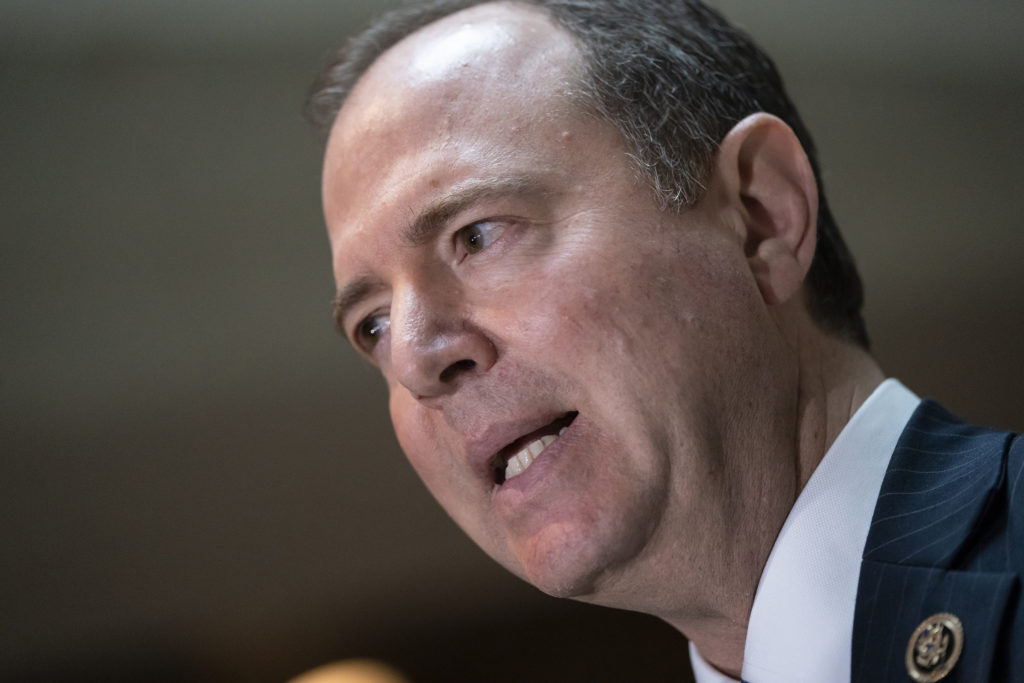
A top House Democrat has threatened to call special counsel Robert Mueller to Capitol Hill, subpoena documents and sue the Trump administration if the full report on Mueller’s Russia investigation is not made public. Rep. Adam Schiff, chairman of the House Intelligence Committee, said his committee will keep close watch on new Attorney General William Barr to see if he were “to try to bury any part of this report.” Schiff, D-Calif., also pledged to “take it to court if necessary.” He said anything less than complete disclosure would leave Barr, who now oversees the investigation, with “a tarnished legacy.” Schiff’s comments come as Democrats have made it clear that they are ready for an aggressive, public fight with the Justice Department if they are not satisfied with the level of access they have to Mueller’s findings. Mueller is showing signs of wrapping up his nearly 2-year-old investigation into possible coordination between Trump associates and Russia’s efforts to sway the 2016 election. The report isn’t expected to be delivered to the Justice Department this coming week. Barr has said he wants to release as much information as he can. But during his confirmation hearing last month, Barr made clear that he will decide what the public sees, and that any report will be in his words, not Mueller’s. Schiff, in a television interview, suggested that anything short of Mueller’s full report would not satisfy Democrats. He pointed to a public interest in seeing some of the underlying evidence, such as information gathered from searches conducted on longtime Trump adviser Roger Stone and Paul Manafort, a former Trump campaign chairman. With Democrats taking control of the House in January and Schiff now the committee chairman, he has undertaken his own investigation. That means re-examining issues covered by a now-closed GOP probe that concluded there was no evidence Trump’s campaign conspired with Russia. Schiff has said the committee also will pursue new matters, including whether foreign governments have leverage over Trump, his relatives or associates. Some Democrats are pointing to documents that Justice Department officials provided to Congress in the wake of the investigation of Hillary Clinton‘s emails, as well as information that Republicans demanded as part of their own inquiries. Schiff said he told department officials after they released information related to the Clinton investigation that “this was a new precedent they were setting and they were going to have to live by this precedent whether it was a Congress controlled by the Democrats or Republicans.” Beyond that, however, is “the intense public need to know here, which I think overrides any other consideration,” he said. Democrats could use Mueller’s findings as the basis of impeachment proceedings. In a letter Friday, Democrats warned against withholding information on Trump on the basis of department opinions that the president can’t be indicted. “We are going to get to the bottom of this,” Schiff said. “If the president is serious about all of his claims of exoneration, then he should welcome the publication of this report.” Many Republicans have also argued that the full report should be released, though most have stopped short of saying it should be subpoenaed. “We need to get the facts out there, get this behind us in a way that people thought that anybody that should have been talked to was talked to any question that should have been asked, was asked,” said Sen. Roy Blunt, a member of the Senate Intelligence Committee. But asked if he thought there could be a subpoena, Blunt, R-Mo., said, “I don’t know that you can.” The Senate committee also has been investigating whether Trump’s campaign conspired with Russia. Blunt suggested a conclusion in that probe might wait until after Mueller’s report. “We’d like to have frankly a little more access to the Mueller investigation before we come to a final conclusion,” Blunt said. “His report will help us write our final report. We’ve given Mueller full access to all of our interviews all of our investigation. We haven’t had that reciprocated and so we’ll soon find out what else is out there that we might not know about.” Schiff appeared on ABC’s “This Week,” and Blunt was on CBS’ “Face the Nation.” Republished with permission from the Associated Press.
Democrats prepare resolution against Donald Trump’s declaration
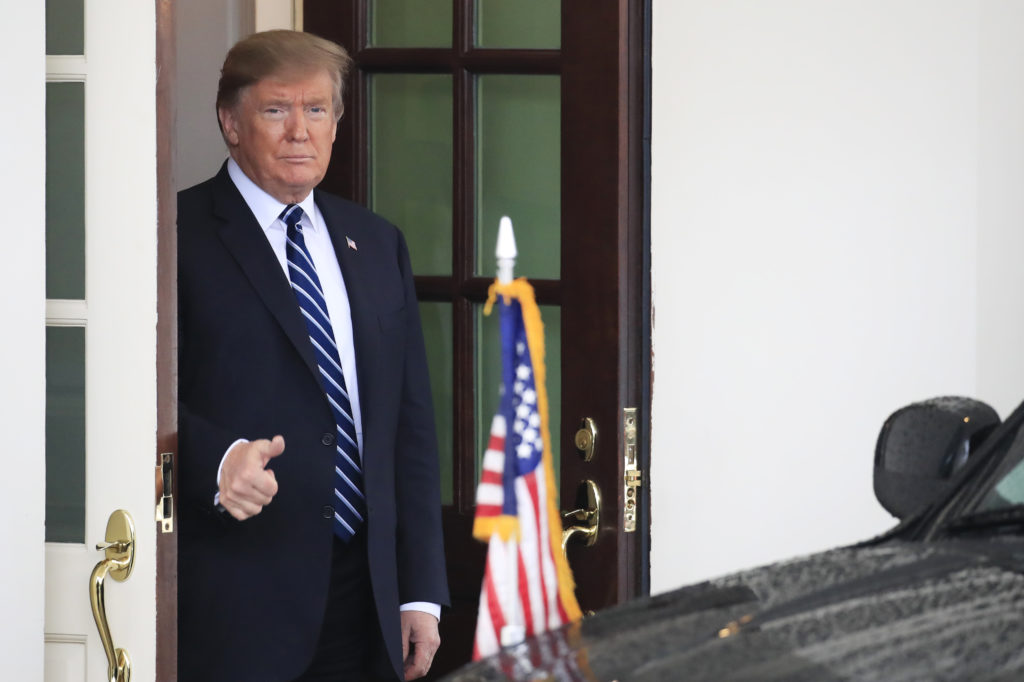
House Democrats will file a resolution Friday aimed at blocking the national emergency declaration that President Donald Trump has issued to help finance his wall along the Southwest border, teeing up a clash over billions of dollars, immigration policy and the Constitution’s separation of powers. Though the effort seems almost certain to ultimately fall short — perhaps to a Trump veto — the votes will let Democrats take a defiant stance against Trump that is sure to please liberal voters. They will also put some Republicans from swing districts and states in a difficult spot. Formally introducing the measure sets up a vote by the full House likely by mid-March, perhaps as soon as next week, because of a timeline spelled out by law. Initial passage by the Democratic-run House seems assured. The measure would then move to the Republican-controlled Senate, where there may be enough GOP defections for approval. The law that spells out the rules for emergency declarations seems to require the Senate to address the issue too, but there’s never been a congressional effort to block one and some procedural uncertainties remain. House Speaker Nancy Pelosi, D-Calif., seemed to predict approval, telling colleagues in a letter that her chamber will “move swiftly” to pass it and “the resolution will be referred to the Senate and then sent to the President’s desk.” Should the House and Senate initially approve the measure, Congress seems unlikely to muster the two-thirds majorities in each chamber that would be needed later to override a certain Trump veto. Even so, Republican senators facing tough 2020 re-election fights in competitive states like Arizona, Colorado and North Carolina would have to take stances that could risk dividing the GOP’s pro-Trump and more moderate voters. Moderate Sen. Susan Collins, R-Maine, said Wednesday she would back a resolution blocking the declaration, making her the first Republican to publicly state her support for the effort to thwart the emergency. With Republicans holding a 53-47 majority, three more GOP senators would need to vote with Democrats for the resolution to win initial approval. The votes could also cause discomfort for other Republicans who’ve opposed the declaration. Many have expressed concerns that Trump’s declaration sets a precedent for future Democratic presidents to declare emergencies to help their own favored issues, like global warming or gun control. The battle is over an emergency declaration Trump has issued to access billions of dollars beyond what Congress has authorized to start erecting border barriers. Building the wall was the most visible trademark of his presidential campaign. Congress approved a vast spending bill last week providing nearly $1.4 billion to build 55 miles of border barriers in Texas’ Rio Grande Valley while preventing a renewed government shutdown. That measure represented a rejection of Trump’s demand for $5.7 billion to construct more than 200 miles. Besides signing the bill, Trump also declared a national emergency and used other authorities that he says gives him access to an additional $6.6 billion for wall building. That money would be transferred from a federal asset forfeiture fund, Defense Department anti-drug efforts and a military construction fund. Federal officials have yet to identify specifically which projects would be affected. Pelosi and Rep. Joaquin Castro, D-Texas, circulated separate letters Wednesday to lawmakers seeking co-sponsors to his one-sentence resolution. A Castro aide said there were already 102 co-sponsors, all Democrats. Both letters targeted Friday for the measure’s introduction. While Congress is in recess this week, the House has a brief “pro forma” session Friday for bill introductions but no votes. Castro’s measure says Trump’s emergency declaration “is hereby terminated.” He chairs the 38-member Congressional Hispanic Caucus. “The President’s decision to go outside the bounds of the law to try to get what he failed to achieve in the constitutional legislative process violates the Constitution and must be terminated,” Pelosi wrote. Pelosi and Senate Minority Leader Chuck Schumer, D-N.Y., said in a joint statement last week that lawmakers will use “every remedy available” to defend Congress’ powers, including in the courts. Democratic aides said Wednesday that leaders were still deciding exactly what legal action to take, and when. Outside activists said they understood from conversations with congressional staff that Democrats were likely to file their own lawsuit, rather than simply joining other actions that 16 state attorneys general and liberal, environmental and other organizations have commenced separately. It remained unclear whether Democrats would wait for congressional action to play out before going to the courts. Speaking Tuesday about the attorneys general suit, Trump said he expected to do “very well” in the case and said he had an “absolute right” to make the declaration. Democrats and some Republicans say there is no emergency at the border. They say Trump is improperly declaring one to work around Congress’ rejection of the higher amounts. Once a resolution of disapproval is introduced, the national emergency law says it must be assigned to a committee, which has 15 calendar days to send it to the full chamber. The House parliamentarian has assigned Castro’s measure to the House Transportation and Infrastructure Committee. That chamber then has three calendar days to vote on it. The timing could be shortened, which is why a vote could occur more quickly. The same procedure is then repeated in the second chamber. The law requires those timetables unless either chamber votes to do otherwise. If McConnell tries using that provision to delay the vote on the resolution, the vote on slowing the measure will become the key showdown. A spokesman for McConnell declined to comment on what the leader will do. Republished with permission from the Associated Press.
As Democrats lean left, will voters follow?
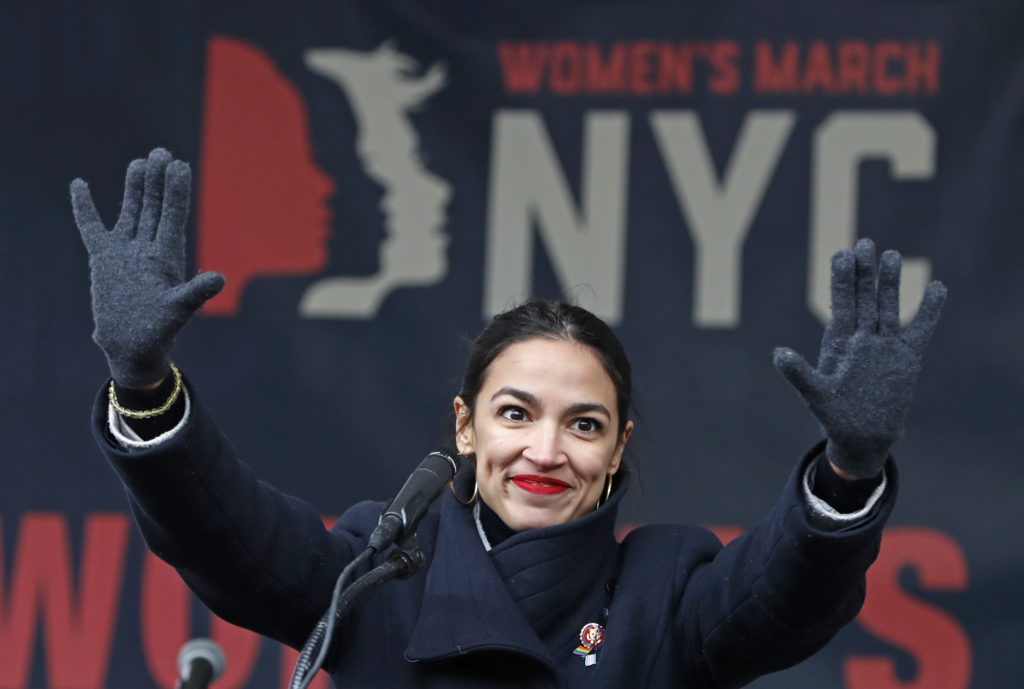
What is happening to the Democrats? Captivated by a handful of liberal superstars, they are venturing where the party has long feared to tread: Steep taxes on the rich. Abolishing an immigration enforcement agency. And proposing a sweeping Green New Deal that calls for an “economic transformation” to combat climate change. On Thursday, newly-elected Rep. Alexandria Ocasio-Cortez led a chorus of cheers as Amazon announced it was abandoning plans to build a sought-after headquarters in New York City. Activists berated the online giant for a $3 billion package of tax breaks she said the city could better invest in hiring teachers or fixing the subway. This is not the Democratic Party of yesteryear. Or even last year. “The Amazon New York fight is an illustration of how power is moving to the left,” said Ben Wikler, of the liberal group MoveOn. “One of the world’s most powerful organizations doesn’t want to pick a fight with progressive activists.” As the liberal flank celebrates its sudden ascendance in the party, energized by the new House freshmen pushing the party toward bold policy solutions, others wonder if the Democrats are veering so far left they’re about to fall off a cliff. It’s a valid question ahead of a presidential primary season with an unusually robust roster of contenders trying to wrest the White House from President Donald Trump. The race comes at a time of shifting party loyalties and eroding confidence in traditional corridors of power, a dynamic that has recast the policy prescriptions of both parties. The big questions for 2020: Will Democrats move beyond the center-left policies that have dominated the party since Bill Clinton’s presidency? And if so, will they find the electorate is repelled, as Republicans claim, or will they discover that a country long described as “center-right” is receptive to a return to liberalism? Democratic pollster John Anzalone said the leftward lurch that’s playing out in the Amazon fight wouldn’t necessarily hurt the party heading into 2020 and could resonate with voters. “When you’re doing corporate giveaways, whether for a big company or a sports team, it’s not as cut-and-dry as most people think,” Anzalone said. “The fact is there tends to be a belief that these big corporations have a lot of money and use their power to get deals they don’t need.” As if to highlight the churn within the party, the 2020 class was mixed in their reactions. A spokesman for former New York City mayor Michael Bloomberg didn’t respond to a request for comment. Howard Schultz, another business-minded former Democrat who’s now weighing an independent bid for president, also declined to comment. Massachusetts Sen. Elizabeth Warren and Vermont Sen. Bernie Sanders, who have long railed against the influence of corporations, weighed in, as did New York Sen. Kirsten Gillibrand. “The people of New York and America are increasingly concerned about the power of large multinational corporations and the billions in corporate welfare they receive,” Sanders said in a statement. “Our job is to end the race to the bottom where taxpayers in one city or state are forced to bid against each other for desperately needed jobs. This is what the rigged economy is all about.” Warren tweeted: “One of the wealthiest companies on the planet – just walked away from billions in taxpayer bribes, all because some elected officials in New York aren’t sucking up to them enough. How long will we allow giant corporations to hold our democracy hostage?” And Gillibrand said, “Walking away so quickly shows that Amazon was interested in the taxpayer assistance and not being a good neighbor in Queens hiring the greatest workers in the world.” As liberal activists across the country welcomed Amazon’s decision as a fresh demonstration of the increasing power of the Democratic Party’s far-left wing, Republicans highlighted the same thing, using the situation to cast the modern-day Democratic Party as extreme. Following Trump’s lead, they pepper their speeches with claims that Democrats are veering toward socialism. “Now, thousands of #New Yorkers will be deprived of good paying jobs at #amazon because of socialists like @AOC – and unfortunately the promise of a #greenjob won’t pay the bills,” former Trump aide Sean Spicer said on Twitter. On Capitol Hill, it’s hard not to compare the arrival of Ocasio-Cortez and the emerging Democratic divide to the tea party class of 2010 that took control of the House and pushed the Republican agenda rightward, ultimately helping give rise to the politics of Trump. It’s not just Ocasio-Cortez. She and House colleagues — Reps. Ilhan Omar of Minnesota, Rashida Tlaib of Michigan and Ayanna Pressley of Massachusetts — jointly announced their opposition to the bipartisan border security deal. They want to cut the Department of Homeland Security’s budget over the administration’s deportation policies, including those that separated families at the border. The four lawmakers were urged on by activists outside the Capitol, protesting what’s seen as ICE’s unnecessarily harsh deportations and raids against immigrants here illegally. Omar, who is Muslim-American, pushed the party further into conflict this week with comments about Israel that were widely seen as anti-Semitic. She apologized. But the questions she and others are raising about the longstanding U.S. ally reflect a growing unease among some Democrats with Israel’s treatment of Palestinians. House Speaker Nancy Pelosi says the Democratic Party’s diversity in the House is its strength, as evidenced by the way her caucus held unified against Trump’s demand for money from Congress to build the wall on the border with Mexico. “Welcome to the Democratic Party,” Pelosi said Thursday. “We are not a monolith, never have been. And who would want to lead a party that would be described that way?” While some high-profile newcomers are capturing media attention, the House majority was also won with new lawmakers who are more measured in their approach to governing even as they battle Trump. All but 19 Democrats approved the bipartisan border package late Thursday. But other Democrats marvel at how quickly the party has
Iowa Democrats propose ‘virtual’ caucuses in 2020

The Iowa Democratic Party on Monday proposed the biggest changes to the state’s famed caucuses in nearly 50 years by recommending Iowans be able to participate virtually. If approved, the measure would allow people to caucus using telephones or smart devices during the days leading up to the Feb. 3 caucus night. It’s a dramatic shift from the current system in which caucusgoers have to physically show up at a site — often a school, church or community center— and show their support for presidential candidates by standing in groups. If the group doesn’t meet an established threshold, the participants have to select another candidate. It’s an often chaotic process that plays out before banks of television cameras on an evening that formally ushers in the presidential primary season. But proponents say it will help address criticism that the caucuses are difficult to attend for single parents, people who work at night and the elderly. “Through this additional process we’re going to be able to give more Iowans a chance to participate in this process,” Iowa Democratic Party Chairman Troy Price said. “Whether someone is a shift worker, a single parent, in the military, living overseas or experiencing mobility issues, this process will now give these individuals a voice in selecting the next president of the United States.” And while Price says the proposed changes are the state party’s effort to open the process often described by critics as antiquated, it was also required by the Democratic National Committee. The results are Iowa Democrats’ attempt at threading the needle of complying while maintaining the essence of the caucuses, which are real-time meetings of fellow partisans. Presidential candidates are already beginning to swarm the state — three were here this weekend. They’ll likely try to determine whether a virtual caucus would help them turn out more of their supporters. “I suspect presidential campaigns who we’ve shared this information with are going to be trying to figure out how to get their members to participate in this,” Price added. Party officials said they didn’t know how many people would take advantage of the new format or how campaigns might seek to capitalize on it. A key element of the proposal, which now goes before Iowa Democrats to comment on for 30 days, is that, no matter how many Iowans participate virtually, their contribution will be factored as a flat 10 percent of the total turnout, apportioned by congressional district. Price said officials reached 10 percent as a starting point, uncertain of how many people might join virtually. “This is a new system so we don’t have any data to tell if this number is too high or too low,” Price said. “And so we are starting the conversation at the 10 percent threshold, and if it goes gangbusters this year, then we will have conversations in subsequent years about if we need to make adjustments.” Hillary Clinton, the 2016 Democratic presidential nominee who narrowly beat Vermont Sen. Bernie Sanders in Iowa that year, criticized the caucus process for deterring late-shift workers and others less able to steal away for an evening of political wrangling. “Campaigns must decide how to organize for that 10 percent,” said veteran Iowa Democratic caucus operative Jeff Link, who did not work for Clinton in 2016 and is not affiliated with a candidate heading into 2020. In another noteworthy development, the state party said it would release the raw data of preferences by caucusgoers, information that is typically kept confidential. The caucuses are a series of preference tests in which candidates without a certain level of support are rendered unviable. This data would give a first glimpse of the candidates’ support before caucusgoers abandon their first choices to side with more viable contenders. The Iowa caucuses are scheduled for February 3, 2020. The proposal won’t be finalized until the spring. Republished with permission from the Associated Press
Stacey Abrams to give Democrats’ response to State of the Union
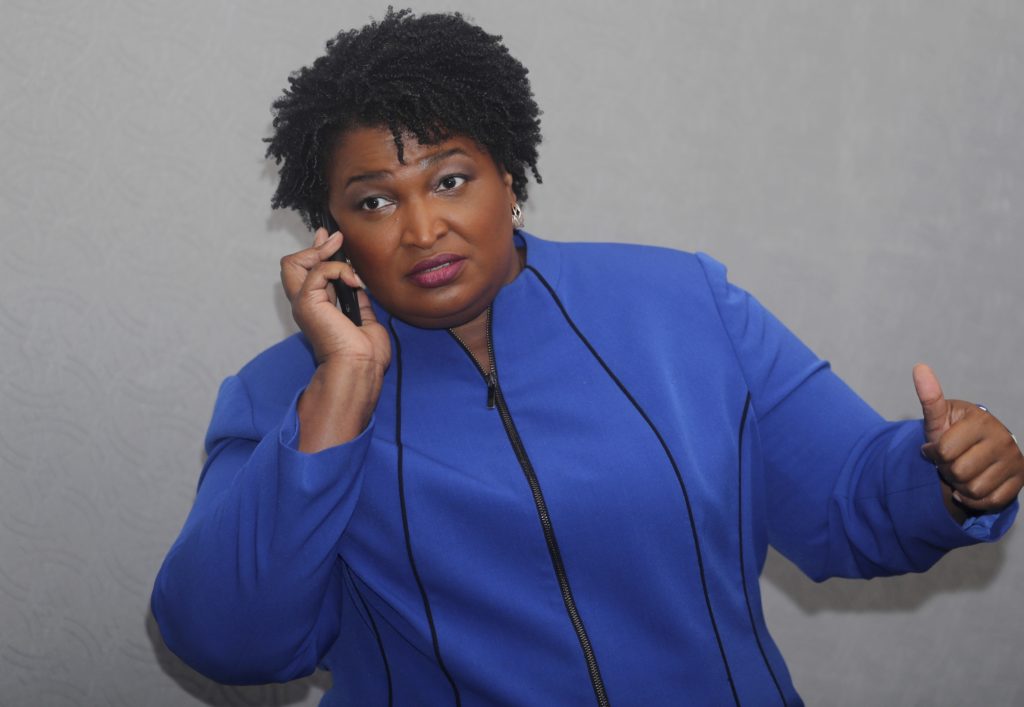
Stacey Abrams, the rising political star who marshaled the power of black female voters but narrowly lost the Georgia governor’s race, will deliver the Democratic response to President Donald Trump’s State of the Union address. Senate Minority Leader Chuck Schumer told reporters Tuesday that he asked Abrams three weeks ago to take on the role and “was very delighted when she agreed.” Abrams narrowly lost the 2018 race against Republican Brian Kemp after a protracted challenge over blocked votes. Senate Democrats have been urging her to mount a 2020 challenge to Republican Sen. David Perdue, who has emerged as one of Trump’s most outspoken allies on Capitol Hill. “She is just a great spokesperson. She is an incredible leader. She has led the charge for voting rights, which is at the root of just about everything else,” Schumer, D-N.Y., told reporters. “She knows what working people, the middle class, go through.” The role elevates Abrams in a party that’s looking to keep core supporters, such as black women who anchor the Democratic base, energized ahead of the 2020 congressional and presidential elections. Abrams’ travel and meeting schedule in recent weeks tells the story of how hotly Democrats have pursued her as their top choice to challenge Perdue: She’s been inundated with calls from Democratic Party leaders, including Schumer, House Speaker Nancy Pelosi and House campaign chief Sen. Catherine Cortez Masto. Abrams also met privately with presidential candidate Sen. Kamala Harris, members of the Congressional Black Caucus and Democratic House members from her state. Party officials see an Abrams candidacy as a promising scenario all around in 2020. Enthusiasm around her Senate run could drive up turnout that would also benefit a Democratic presidential candidate in the state, while the money that a White House campaign would bring to Georgia would help Abrams. For her part, Abrams has started a voting rights advocacy group but is also considering her own political future and looking to help other Democrats. She is expected to make a decision about the Senate race in coming months. The State of the Union response often serves as an audition of sorts for ambitious political figures looking to raise their profile. But it’s also frequently a thankless task, with brutal reviews. Republican Sen. Marco Rubio’s lunge for a water bottle became a meme after his response in 2013. Then-Louisiana Gov. Bobby Jindal was panned for being dull in 2009. In 1996, then-presidential candidate Bob Dole gave a less-than-boffo performance and was widely criticized for his delivery and the lighting. But for Abrams, the response is not an audition. She’s well-known in the U.S. for nearly winning the governor’s race and disputing the vote. A group backed by Abrams filed a federal lawsuit this month saying Georgia deprived many low-income people and minorities of their voting rights with Kemp, then secretary of state, overseeing the 2018 election. After a long dispute, Kemp won the governorship. Republished with permission from the Associated Press
MLK holiday represents big moment for 2020 Democrats
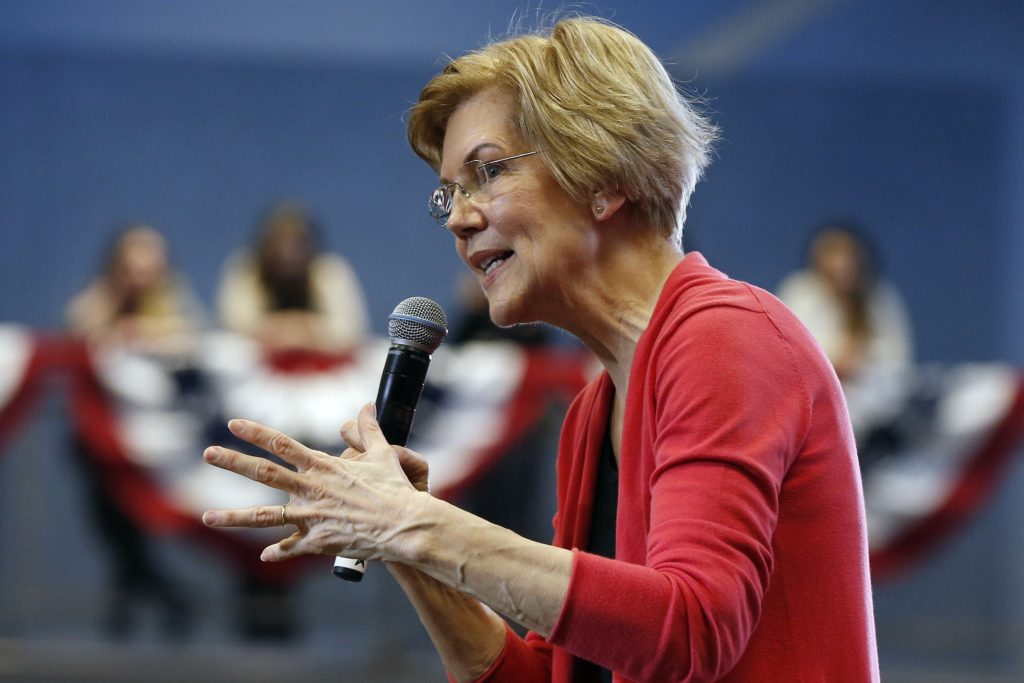
Monday’s observance of what would have been Martin Luther King Jr.’s 90th birthday is emerging as an important moment for Democrats eyeing the White House to talk about one of the most divisive issues in American politics: race. At least a half dozen declared or potential presidential candidates will attend events and talk about what King’s legacy means to Americans in 2019. Among them is former Vice President Joe Biden, who, amid intense speculation over whether he’ll seek the presidency, will make his first public appearance of the year at the National Action Network’s annual King breakfast in Washington with its founder, the Rev. Al Sharpton, and Martin Luther King III. Former New York Mayor Michael Bloomberg, still considering a bid, is also on the schedule. And New York Sen. Kirsten Gillibrand, who jumped in the 2020 race this week, will appear with Sharpton later in the day in Harlem. Meanwhile, Sens. Cory Booker of New Jersey and Bernie Sanders of Vermont will attend events in South Carolina, where black voters make up 60 percent of the Democratic primary. And Massachusetts Sen. Elizabeth Warren is expected to speak in Boston, where King attended seminary. The King holiday marks the first time in the early days of the Democratic primary that so many White House hopefuls are holding public events on the same day. That reflects the wide-open nature of the 2020 field, which is likely to include several candidates of color for the first time. Some Democrats say the party’s presidential nomination could ultimately go to the person who best navigates racial issues. “On King Day, they should all have messages for how we enable people who live on the outskirts of hope to come back into the circle of opportunity,” said Democratic strategist Donna Brazile. “That’s what Dr. King would do.” Politics loom large over this year’s remembrances. In a tweet earlier this week, President Donald Trump again mocked Warren, using the slur “Pocahontas” and referring to the 19th-century Battle at Little Bighorn and Wounded Knee Massacre. Rep. Steve King, an Iowa Republican, prompted bipartisan criticism with racist remarks that questioned how white supremacy and white nationalism became offensive terms. King has said his comments were taken out of context. Against that backdrop, Sharpton said it’s crucial for the candidates speaking on Monday to directly address racial politics. “It will be telling if they do not represent an alternative to the situation we’re in,” he said, referring to the country’s racial divisions. “They’ve got to deal with the issues in a way that we know that they’re not just making a one-day-a-year speech.” “The challenge,” he added, “is how you distinguish yourself without appearing disunifying.” Last fall’s midterm elections show the potential for assembling such coalitions, with several minority congressional candidates winning in mostly white districts. And while black Democrats suffered defeat in Georgia, Florida and Missouri, the gains they made show promise for minority candidates eyeing 2020. Andrew Gillum, who lost his Florida gubernatorial bid in November by 30,000 votes, has met with several potential 2020 candidates in recent weeks, and he said the topic of race has come up. The issue was unavoidable in his own bid to become Florida’s first African-American governor. “Under no circumstance could I deny my race and how that has informed who I am today,” Gillum said. “People aren’t stupid. I don’t want anyone to pull any punches about how race shows up in society and how it impacts us.” But the balance is tricky, particularly for candidates of color, he said. For them, navigating race “is like walking on a lake freshly frozen,” Gillum said. “You never know what step might take you under.” Regardless of their race, Democratic candidates will have to find a way to appeal to a broad coalition of voters with a message that energizes a diverse base without alienating whites whose support will also be crucial. In a video accompanying the launch of her presidential exploratory committee, Warren included a chart outlining the disparate household wealth between white and black families and called for an economy that “works for all of us.” A similar video from Gillibrand included broad appeals such as a pledge to support the middle class, along with a clip of her saying, “It is outrageous to ask women of color to bear the burdens of every single one of these fights over and over and over again.” Alabama Sen. Doug Jones, who is white, defeated African-American challengers in his primary before going on to win a special election in 2017, becoming the first Democrat in a generation to represent the solidly Republican state. Jones said his background as the prosecutor who brought the 16th Street Baptist Church bombers to justice was an advantage with black voters, but added that he also had a proven track record on issues of equality, respect and voting rights long after that case. “Folks are going to be looking at candidates and saying, ‘Have you got a history of this, or is it just the first time you’re looking at it?’” Jones said in an interview. “I talked about issues important to the African-American community, but they were really a lot of the same issues that were important to the white community: health care, jobs, education, those kitchen-table issues that cross all manner of racial lines and get to the heart of the matter.” Authenticity will be important for candidates, regardless of color, in delivering a message that resonates with voters, Jones said. “If you’re talking to the black preachers in the Black Belt of Alabama, you ought not be afraid of giving the same speech to the Chamber of Commerce in Madison County,” he said. “It’s a matter of messaging. You’ve got to be who you are. … Not trying to pander to anyone, not to appear that you’re pandering to anyone or not trying to minimize your support.” ___ Republished with permission from the Associated Press.
Steve Flowers: Very few white Democrats left in Legislature. Several legends retire
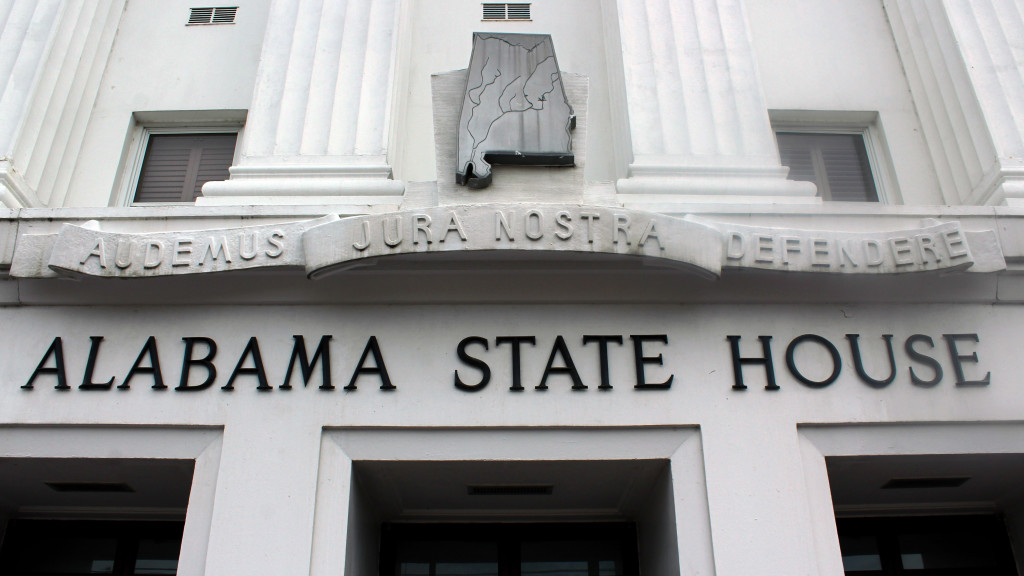
The Republican tidal wave that swept Alabama’s statewide office holders to landslide victories filtered down to legislative races. Even though our legislature really didn’t need to become any more conservative or Republican, it did anyway. We had a super majority Republican State House and Senate. We now have a super, super GOP majority. Republicans picked up five more Alabama House seats and added another state Senate seat. That gives the GOP a 27 to 8 advantage in the Senate and a 77 to 28 edge in the House. If you make a trip to the Capitol and view the circus-like atmosphere of the January organizational session, you will be as likely to see a dinosaur on display as to spot a white Democratic legislator. There are two in the 140 membership. The two relics are Billy Beasley in the Senate and Neil Rafferty in the House. Three Democratic House Icons did not run for reelection this year. Retiring House members, James Buskey of Mobile, Marcel Black of Tuscumbia and Richard Lindsey of Centre, were legends and they will be missed. They epitomized the class and quality of individuals who have rendered outstanding leadership and statesmanship to public service for not only their constituents but also to the State of Alabama. James Buskey is retiring at 81. Mr. Buskey has served 42 years in the Alabama House of Representatives. He first won election to his House Seat in a Special Election in 1976. He subsequently was reelected overwhelmingly to 10 four-year terms. His leadership has made an impact for all of Mobile County. Over his legislative career he served on Ways and Means and Rules Committees. Over the past decade he has been the leader and wise shepherd of the Democrats in the House even though he let young members hold the Title. His professional career was as an educator. He served as a Vice Principal and Principal of several Mobile High Schools. I watched him be pushed to the limit numerous times in his efforts to represent his constituents. I never saw him lose his temper or his dignified yet humorous demeanor. As long as I live I will never forget a speech he made on the floor of the House in 1983. George Wallace was in his last term as governor and he was trying to tax everything that wasn’t nailed down. Even though Mobile had always been good to Wallace, he was aiming a good many of his tax initiatives at the Port City. Buskey took to the microphone and an impassioned yet hilarious portrayal of Wallace’s tax men in a flotilla of vessels sailing into Mobile Bay to rob the Mobilians. I will fondly call him Admiral in memory of that speech for the rest of my life. Representative Marcel Black is retiring at age 67after 28 years in the Alabama Legislature. Marcel is one of the finest gentlemen I’ve ever known. He was born and raised in Tuscumbia and represented his hometown of Tuscumbia and County of Colbert for seven four-year terms. He is a proud graduate of the University of Alabama and Alabama Law School. Besides being an outstanding legislator, he is one of the most prominent lawyers in his part of the state. He was a great friend and admirer of Tuscumbia’s most prominent lawyer and judge and Senator Howell Heflin. Heflin, who served as Alabama’s Chief Justice and our United States Senator for 18 years, however, was not Tuscumbia’s most prominent citizen. That title belongs to one Helen Keller. Marcel served in a host of legislative posts. He was Chairman of the Judiciary Committee and would have probably been elected Speaker of the House had the Democrats retained the majority in 2010. Representative Richard Lindsey is retiring at the ripe old age of 62. He has served 36 years in the Alabama House of Representatives. If you assume that you are an adult at 21, then that means that Richard has served almost his entire adult life representing his home folks in the Legislature, 36 of his 41 years as an adult has been as a legislator. He was elected in 1982 at age 26. Even though he has been a State Representative for most of his life, he is first and foremost a farmer. He was born and raised in Centre in Cherokee County and runs the family farm business. He has been a leader in the Alabama Farmers Federation and his Methodist church. Like Marcel Black, Richard Lindsey is one of the finest gentlemen you will ever meet. James Buskey, Marcel Black and Richard Lindsey exude integrity. Legislators on both sides of the aisle should strive to emulate these three gentlemen. See you next week. ••• Steve Flowers is Alabama’s leading political columnist. His weekly column appears in over 60 Alabama newspapers. He served 16 years in the state legislature. Steve may be reached at www.steveflowers.us.


